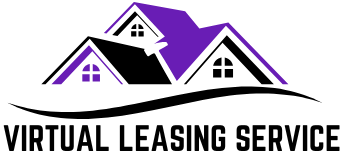In the dynamic world of virtual property management assistant, efficiency is key to success. As property owners and managers navigate the complexities of maintaining and leasing properties, the demand for streamlined solutions continues to grow. Enter the Virtual Property Management Assistant, a revolutionary concept poised to transform the landscape of property management as we know it.
In this comprehensive guide, we embark on a journey to explore the realm of virtual property management assistance. From understanding the role of virtual assistants in property management to uncovering the benefits they offer, we delve into the intricacies of this innovative approach and its potential impact on the industry.
Virtual Property Management Assistant Complete Guide Of 2024

With advancements in technology reshaping virtually every aspect of our lives, it’s no surprise that the property management sector is also undergoing a digital transformation. The emergence of virtual assistantsto automate and streamline tasks represents a significant shift in how property management operations are conducted.
The Role of Virtual Property Management Assistants
At its core, a Virtual Property Management Assistant serves as a digital ally for property owners and managers, handling a wide array of administrative tasks with speed and precision. From managing tenant inquiries and scheduling maintenance requests to optimizing rental listings and analyzing market trends, these virtual assistants offer a multifaceted approach to property management support.
Unlocking Efficiency and Productivity of Virtual Property Management Assistants
One of the most compelling aspects of virtual leasing services & property management assistants is their ability to enhance efficiency and productivity. By automating repetitive tasks and streamlining workflows, these digital assistants empower property professionals to focus their time and energy on strategic decision-making and high-priority activities, ultimately driving business growth and success.
Embracing Innovation in Property Management
As the real estate industry continues to evolve, embracing innovation becomes increasingly vital for staying competitive and meeting the evolving needs of clients and tenants. Virtual property management assistants represent a progressive step towards modernizing property management practices, offering a glimpse into the future of the industry.
Empowering Property Professionals
In the fast-paced world of property management, staying ahead of the curve is essential for success. By harnessing the power of virtual property management assistants, property professionals can gain a competitive edge, optimize their operations, and deliver exceptional service to their clients and tenants.
In the following sections of this guide, we’ll delve deeper into the functionalities, benefits, and best practices associated with virtual property management assistants. From exploring real-world case studies to providing practical tips for implementation, we’ll equip you with the knowledge and insights you need to leverage this transformative technology effectively.
Join us as we embark on a journey into the future of property management, where innovation meets efficiency, and digital assistants pave the way for greater success and prosperity in the industry.
Related: Virtual Consultations
What You Can Achieve with a Virtual Property Management Assistant

In today’s fast-paced world, property management demands efficiency, productivity, and adaptability. With the emergence of virtual property management assistants, property owners and managers now have access to a powerful tool that can revolutionize their operations. Let’s explore what you can achieve with a virtual property management assistant:
1. Enhanced Administrative Efficiency
Virtual property management assistants excel at handling administrative tasks with precision and speed. From managing tenant inquiries and scheduling maintenance requests to organizing documents and data, these digital assistants streamline workflows, allowing property professionals to focus their time and energy on strategic decision-making and growth-oriented activities.
2. Improved Tenant Communication
Maintaining clear and consistent communication with tenants is essential for fostering positive relationships and addressing concerns promptly. Virtual assistants can automate tenant communication processes, sending reminders for rent payments, lease renewals, and maintenance appointments. By keeping tenants informed and engaged, property managers can enhance tenant satisfaction and retention rates.
3. Optimal Rental Listing Management
Maximizing the visibility and appeal of rental listings is crucial for attracting prospective tenants. Virtual property management assistants can assist with creating and optimizing rental listings, ensuring that they are well-written, visually appealing, and strategically priced. By leveraging data-driven insights and market analysis, these assistants help property managers optimize their rental portfolio and minimize vacancy rates.
4. Efficient Maintenance Coordination
Timely maintenance and repairs are essential for preserving the condition and value of rental properties. Virtual assistants can streamline maintenance coordination by managing work orders, scheduling appointments with contractors, and tracking repair progress. By automating these processes, property managers can ensure that maintenance issues are addressed promptly, minimizing tenant complaints and property damage.
5. Data Analysis and Insights
In today’s data-driven landscape, access to actionable insights is invaluable for making informed business decisions. Virtual property management assistants can analyze data from various sources, including rental performance metrics, market trends, and tenant feedback. By providing real-time insights and actionable recommendations, these assistants empower property managers to optimize their strategies and maximize profitability.
6. Scalability and Flexibility
One of the key advantages of virtual property management assistants is their scalability and flexibility. Whether you manage a single property or a large portfolio, these assistants can adapt to your needs and scale their services accordingly. Additionally, they offer the flexibility to work remotely, allowing property managers to access support whenever and wherever they need it.
A virtual property management assistant offers a wide range of benefits, from enhancing administrative efficiency and tenant communication to optimizing rental listings and maintenance coordination. By leveraging the capabilities of these digital assistants, property managers can streamline their operations, improve tenant satisfaction, and ultimately achieve greater success in the competitive property management industry.
Related: Tenant Resources
How to Get Your Property Management Service into “Virtual” Mode

In today’s rapidly evolving digital landscape, embracing virtual solutions is essential for staying ahead in the property management industry. Transitioning your property management service into “virtual” mode requires careful planning and implementation. Here are some essential steps to guide you through the process:
1. Assess Your Current Operations
Begin by conducting a thorough assessment of your current property management operations. Identify tasks and processes that can be automated or digitized to streamline efficiency. This may include tenant communication, rent collection, maintenance requests, and lease management.
2. Invest in Virtual Assistant Technology
Research and invest in virtual assistant technology that aligns with your specific needs and objectives. Look for platforms or software solutions that offer features such as automated communication, task scheduling, data analysis, and reporting capabilities. Choose a solution that integrates seamlessly with your existing systems and workflows.
3. Implement Training and Onboarding
Provide comprehensive training and onboarding for your team to familiarize them with the new virtual assistant technology. Ensure that they understand how to utilize the software effectively and maximize its benefits. Offer ongoing support and resources to address any questions or challenges that may arise during the transition process.
4. Customize Virtual Assistant Workflows
Customize virtual assistant workflows to suit the unique requirements of your property management service. Define clear protocols and guidelines for how tasks will be assigned, executed, and monitored within the virtual assistant platform. Tailor workflows to optimize efficiency and ensure seamless integration with your existing operations.
5. Communicate with Clients and Tenants
Communicate with your clients and tenants to inform them of the transition to virtual mode and reassure them of continued service excellence. Highlight the benefits of virtual assistant technology, such as improved responsiveness, enhanced communication, and greater convenience. Address any concerns or questions they may have and emphasize your commitment to delivering exceptional service.
6. Monitor Performance and Make Adjustments
Regularly monitor the performance of your virtual assistant technology and workflows to identify areas for improvement. Gather feedback from your team, clients, and tenants to assess satisfaction levels and identify any challenges or opportunities for optimization. Make adjustments as needed to ensure that your virtual mode operations continue to deliver value and efficiency.
By following these steps, you can successfully transition your property management service into “virtual” mode and unlock the benefits of streamlined operations, improved efficiency, and enhanced customer satisfaction. Embrace the power of virtual assistant technology to stay competitive in the digital age and position your business for long-term success.
Related: LandLoard Resources
Why You Need to Think About Virtual Property Management

In the ever-evolving landscape of property management, staying ahead of the curve is imperative for success. Traditional property management methods, while effective, may not always be the most efficient or cost-effective. This is where the concept of virtual property management emerges as a game-changer.
Embracing Efficiency and Innovation
Virtual property management introduces a paradigm shift in the way property management tasks are handled. By leveraging the power of technology and automation, virtual assistants streamline administrative processes, optimize workflows, and enhance overall efficiency. From managing tenant inquiries and scheduling maintenance tasks to conducting market research and analyzing data, virtual assistants offer a comprehensive solution to the myriad challenges faced by property managers.
Cost-Effective Solutions
In addition to improving operational efficiency, virtual property management solutions also offer significant cost savings. By automating repetitive tasks and reducing the need for manual intervention, property managers can allocate resources more strategically and minimize overhead costs. Furthermore, the scalability of virtual assistant services allows property managers to adapt to fluctuating workloads without the need for additional hiring or training expenses.
Access to Expertise and Resources
Virtual property management assistants provide access to a wealth of expertise and resources that may not be readily available within an organization. Whether it’s staying updated on industry trends, implementing best practices, or leveraging advanced analytics tools, virtual assistants offer a level of support and insight that can help property managers make informed decisions and drive business growth.
Flexibility and Adaptability
One of the key advantages of virtual property management is its flexibility and adaptability to changing circumstances. Virtual assistants can scale their services according to the needs of the property manager, whether it’s managing a single property or an entire portfolio. This scalability allows property managers to maintain agility in a dynamic market environment and respond quickly to emerging opportunities or challenges.
Enhanced Customer Experience
Ultimately, the adoption of virtual property management solutions translates into a better experience for both property managers and tenants alike. By streamlining operations, reducing response times, and improving communication, virtual assistants contribute to a more seamless and enjoyable rental experience. This, in turn, can lead to higher tenant satisfaction, increased retention rates, and ultimately, improved profitability for property managers.
Virtual property management represents a forward-thinking approach to addressing the complexities and challenges of modern property management. By embracing technology, automation, and innovation, property managers can unlock new levels of efficiency, cost savings, and customer satisfaction. As the industry continues to evolve, the adoption of virtual property management solutions will undoubtedly become increasingly essential for staying competitive and achieving long-term success.
Related: Maintenance Requests
Frequently Asked Questions (FAQs)
What tasks can a virtual property management assistant handle?
Virtual property management assistants can handle a wide range of tasks, including tenant inquiries, maintenance scheduling, rent collection, lease management, market research, and data analysis. Their capabilities are designed to streamline operations and optimize efficiency in property management.
How does hiring a virtual property management assistant benefit me as a property manager?
Hiring a virtual property management assistant offers several benefits, including increased productivity, cost savings, access to expertise and resources, flexibility in managing workloads, and an enhanced customer experience. These assistants help property managers focus on strategic decision-making and business growth while handling routine administrative tasks efficiently.
Can a virtual property management assistant adapt to my specific needs and preferences?
Yes, virtual property management assistants are highly adaptable and can tailor their services to meet your specific needs and preferences. Whether you manage a single property or a portfolio, these assistants can scale their services accordingly, providing flexibility and agility in addressing your unique requirements.
How do I ensure effective communication and collaboration with my virtual property management assistant?
Effective communication and collaboration with your virtual assistant are essential for maximizing productivity and achieving desired outcomes. Establish clear expectations, provide detailed instructions, utilize communication tools such as email, messaging apps, and project management software, and schedule regular check-ins to ensure alignment and accountability.
How can I find a reliable virtual property management assistant?
Research virtual assistant service providers, read reviews and testimonials, and ask for recommendations from other property managers or industry professionals. Look for assistants with experience in property management, strong communication skills, and a track record of delivering high-quality service. Conduct interviews and trials to assess compatibility before making a decision.
What are some potential challenges of working with a virtual property management assistant?
While virtual property management assistants offer numerous benefits, challenges such as timezone differences, language barriers, and technology issues may arise. Effective communication, clear expectations, and proactive problem-solving are key to overcoming these challenges and maximizing the value of your virtual assistant partnership.
Conclusion
The decision to hire a virtual property management assistant offers property managers a strategic advantage in optimizing their operations, maximizing efficiency, and ultimately saving both time and money. By leveraging the capabilities of virtual assistants, property managers can streamline administrative tasks, enhance productivity, and focus on strategic decision-making, all while minimizing overhead costs and improving profitability.
The benefits of hiring a virtual property management assistant extend beyond mere cost savings. These assistants provide access to expertise and resources, enhance flexibility and scalability, and contribute to a better overall customer experience. Whether managing a single property or an extensive portfolio, virtual assistants offer a cost-effective solution to the challenges of modern property management.
As the real estate industry continues to evolve, embracing innovative solutions such as virtual property management assistance becomes increasingly essential for staying competitive and achieving long-term success. By investing in virtual assistants, property managers can unlock new levels of efficiency, agility, and customer satisfaction, positioning themselves for sustained growth and prosperity in a dynamic market environment.
In essence, hiring a virtual property management assistant is not just a cost-saving measure; it’s an investment in the future of property management. By harnessing the power of technology, automation, and expertise, property managers can transform their operations, elevate their service offerings, and navigate the complexities of the industry with confidence and ease.



Add a Comment